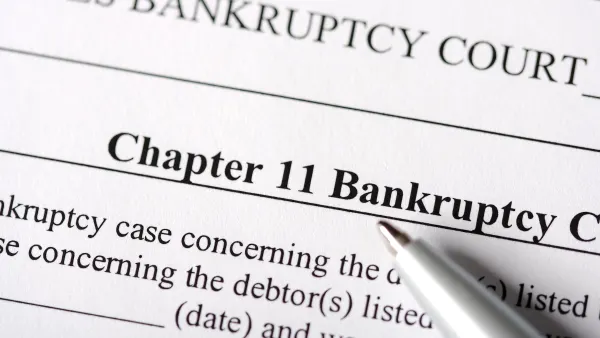Dive Brief:
- The federal government could be getting more help in defending its interpretation of a decades-old drug discount program in court.
- On Thursday, a group of hospitals filed a motion to intervene as defendants in Johnson and Johnson’s lawsuit against the government for preventing the drugmaker from changing how it divvies out savings in the program, called 340B.
- J&J said its plan to give hospitals rebates instead of upfront discounts on 340B-eligible drugs is necessary to prevent waste and abuse, while hospitals — and the government — maintain the plan is illegal.
Dive Insight:
In the summer of 2024, J&J became the first pharmaceutical company to try to unilaterally reform how it distributes savings for drugs in the 340B program, which requires drugmakers to give hospitals that serve a large number of needy or vulnerable patients discounts on medication.
Instead of giving hospitals a discount when they purchase eligible drugs — the accepted practice in 340B since the program was created in the early 1990s — J&J wants hospitals to purchase drugs at full price, submit a claim for rebate and then provide a rebate after that claim is certified.
J&J’s plan would have initially applied to two of its most expensive and frequently prescribed drugs, plaque psoriasis treatment Stelara and blood thinner Xarelto.
Still, the idea was quickly slammed by hospitals and the Health Resources and Services Administration, the HHS subagency that oversees 340B. According to HRSA, the law governing 340B requires drugmakers to discount drugs at the point of sale.
Hospitals added that J&J’s plan would effectively result in them floating revenue to the drugmaker by paying a higher price for 340B medication with no certainty that they’ll be made whole down the line. It would also put them on the hook for the financial and manpower burden of complying with data collection and reporting requirements for claims — not to mention potential legal fees from fighting any J&J denials of legitimate rebate claims in court, hospitals say.
J&J sued HRSA in November in a Washington, D.C. district court for blocking its plan.
Since then, Eli Lilly, Bristol Myers Squibb, Sanofi and Novartis have all also sued HRSA over their right to put 340B rebates in place.
If the spate of lawsuits are successful, the rebate plans could cause “crippling damage to safety-net hospitals throughout the nation,” said Maureen Testoni, the CEO of 340B Health, in a statement. 340B Health represents more than 1,500 hospitals in the 340B program.
Hospitals would have to divert resources to complying with the rebate requirements, pay “tens of millions of dollars” in extra costs to purchase drugs and assume “enormous financial risk” from drugmakers rejecting legitimate claims for rebates, Testoni said.
Now, 340B Health and two safety-net hospitals — UMass Memorial Medical Center (UMMC) in Massachusetts and Genesis HealthCare System in Ohio — want to intervene in J&J’s case to show the court the harm that would be caused if it allows J&J’s rebate plan to take effect.
UMMC estimates it would cost the system $24 million each year to purchase Stelara and Xarelto at full price upfront, not to mention almost $400,000 on staffing and legal fees to comply with the rebate requirements, according to a memo to the court supporting the hospitals’ motion.
Genesis would need to spend $300,000 each year to purchase Stelara and Xarelto at full price, and more than $200,000 to comply with the rebate requirements, according to the memo.
If J&J denies legitimate rebate claims, the financial hit to UMMC would threaten patient care initiatives funded by 340B, including free care for low-income patients and mobile care clinics. Genesis might have to roll back its patient drug assistance program, transportation programs and free community health programs, the memo says.
Lawyers for J&J plan to oppose the hospitals’ motion to intervene, according to court documents.
The legal debate over J&J’s rebate model is “limited to our company and HRSA,” a spokesperson for the New Jersey-based drugmaker said over email.
HRSA does not plan to take a stance on the motion. The agency did not respond to a request for comment.
Drugmakers and hospitals have long been at odds over 340B, as drugmakers aren’t fans of the chunk that 340B discounts, which are generally 20% to 50% off list prices, takes out of their bottom lines.
The pharmaceutical industry argues that hospitals haven’t been good stewards of the program, pointing to data showing snowballing growth in how many providers are eligible to participate and in the volume of purchased drugs. Some lawmakers agree that 340B could use more oversight amid concerns that hospitals could be profiteering from the program.
Tension over 340B has frequently bubbled up in the courts.
Along with litigation filed in the past three months over rebate plans, drugmakers have also sued the government to try to restrict the number of pharmacies hospitals can contract with to distribute 340B drugs. Courts have generally sided with drugmakers in those suits. However, some states have passed laws stopping drugmakers from limiting hospitals’ use of contract pharmacies.
The HHS under the Biden administration has championed the hospitals’ perspective, but it’s unclear what stance the department will have under President Donald Trump. Though hospitals defend the savings they receive under 340B as essential to preserving patient care, the program’s exponential growth could make it a target of conservative efforts to rein in spending.
The American Legislative Exchange Council — a free market policy group backed by drug lobby PhRMA — argued 340B should be a target of reform last month.
The turnover in Washington has created some uncertainty that 340B Health, UMMC and Genesis acknowledged in their memo to the court.
“Intervention is particularly important here during the current change of administration because during such changes agencies and the Justice Department typically re-evaluate the positions they have previously taken,” the memo reads.














